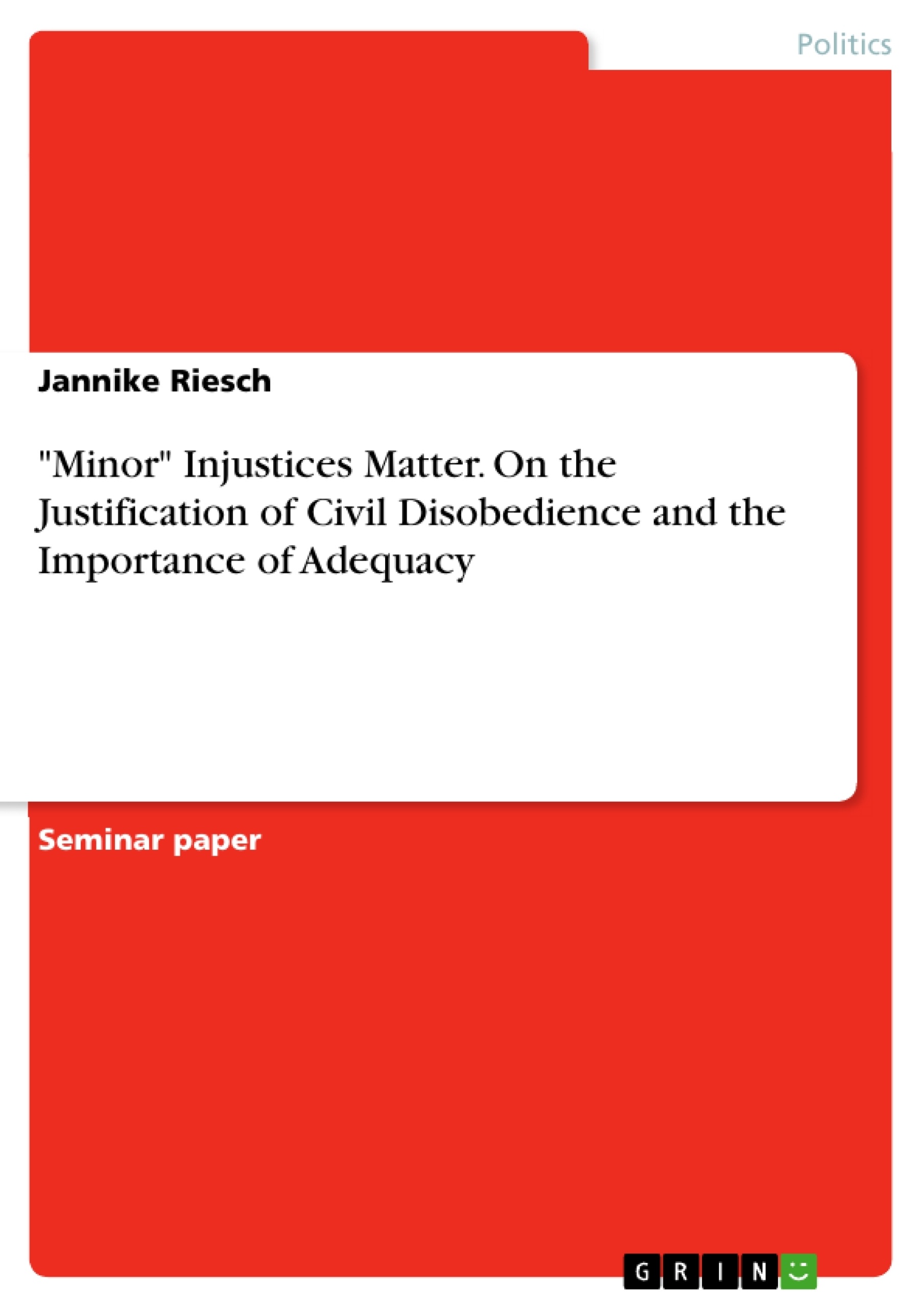In 2011, current President of the Federal Republic of Germany, Joachim Gauck, discredited civilly disobedient acts committed by supporters of the Occupy Wall Street movement as “ineffably foolish” and, on a different note, warned of a protest culture “that only flares if one’s own front yard is affected.” With the latter statement, Gauck undermined the protest of thousands of demonstrators in the city of Stuttgart who had been engaging in acts of civil disobedience out of frustration about a large-scale construction project on the city’s main train station—a project which they perceived to be neither economically nor ecologically reasonable, nor sufficiently legitimized democratically. These attention-grabbing movements receiving harsh judgements of high state representatives such as Gauck reignited the public debate about the justification of civil disobedience in Germany—a debate that is of everlasting importance among theoretical examinations.
Whereas within this debate it is largely beyond question that citizens of unjust and corrupt states with no legitimately established authority clearly have the right to (even more drastic forms of) resistance, the real challenge lies in answering the following question: How, that is to say, on which grounds and under which circumstances, can illegal means of protest be justified in a prima facie legitimate state?
Inhaltsverzeichnis (Table of Contents)
- Introduction
- Grounds of Justification: A Shared Sense of Justice?
- Objects of Civil Disobedience: Why "Minor" Injustices Matter
- Methods of Civil Disobedience: On Justification and Adequacy.
- Concluding Remarks
Zielsetzung und Themenschwerpunkte (Objectives and Key Themes)
This paper aims to defend the thesis that civil disobedience can be justified in cases of "minor" injustices. The author argues that existing theories of civil disobedience, like those proposed by John Rawls and Jürgen Habermas, focus too heavily on "substantial and clear injustices" that violate basic rights. The paper will explore the justification of civil disobedience beyond these traditional frameworks, looking at cases where civil liberties are not directly threatened.
- The justification of civil disobedience in "near justice" states.
- The role of "minor injustices" in justifying civil disobedience.
- The connection between the gravity of injustice and the adequacy of methods used in civil disobedience.
- The importance of considering various methods and objects of civil disobedience.
- The application of Rawls and Habermas' theories to the justification of civil disobedience.
Zusammenfassung der Kapitel (Chapter Summaries)
- Introduction: This chapter establishes the context of the paper by highlighting the ongoing debate about the justification of civil disobedience in Germany, specifically using the example of the Occupy Wall Street movement and its criticism by Joachim Gauck. The author outlines the limitations of existing theories, particularly Rawls' focus on "substantial and clear injustices," and proposes a focus on "minor injustices" as a key area of inquiry.
- Grounds of Justification: A Shared Sense of Justice?: This chapter explores the theoretical grounds for justifying civil disobedience, acknowledging its inherently illegal nature. The author will analyze Rawls' concept of a "nearly just" state and discuss its implications for justifying civil disobedience in situations where basic rights are not directly violated.
Schlüsselwörter (Keywords)
Civil Disobedience, Justification, Minor Injustices, Adequate Means, Rawls, Habermas, Democratic Constitutional State, Protest Culture, "Near Justice."
Frequently Asked Questions
Can civil disobedience be justified for "minor" injustices?
Yes, the paper argues that illegal means of protest can be justified even when basic civil liberties are not directly threatened, provided the methods are adequate to the cause.
What is the "near justice" state in Rawls' theory?
It refers to a prima facie legitimate state that is mostly just but still contains specific instances of injustice that may warrant civil disobedience.
How did Joachim Gauck view the Stuttgart 21 protests?
Gauck criticized a protest culture that only flares up when personal interests ("one's own front yard") are affected, discrediting some acts of civil disobedience as "ineffably foolish."
What are the limitations of Rawls' and Habermas' theories of protest?
The paper suggests they focus too heavily on substantial violations of basic rights, often overlooking injustices related to democratic legitimacy or ecological concerns.
Why does the adequacy of methods matter in civil disobedience?
The justification of an illegal act depends on whether the chosen form of protest is proportionate to the injustice being addressed.
- Quote paper
- Jannike Riesch (Author), 2016, "Minor" Injustices Matter. On the Justification of Civil Disobedience and the Importance of Adequacy, Munich, GRIN Verlag, https://www.grin.com/document/462231



